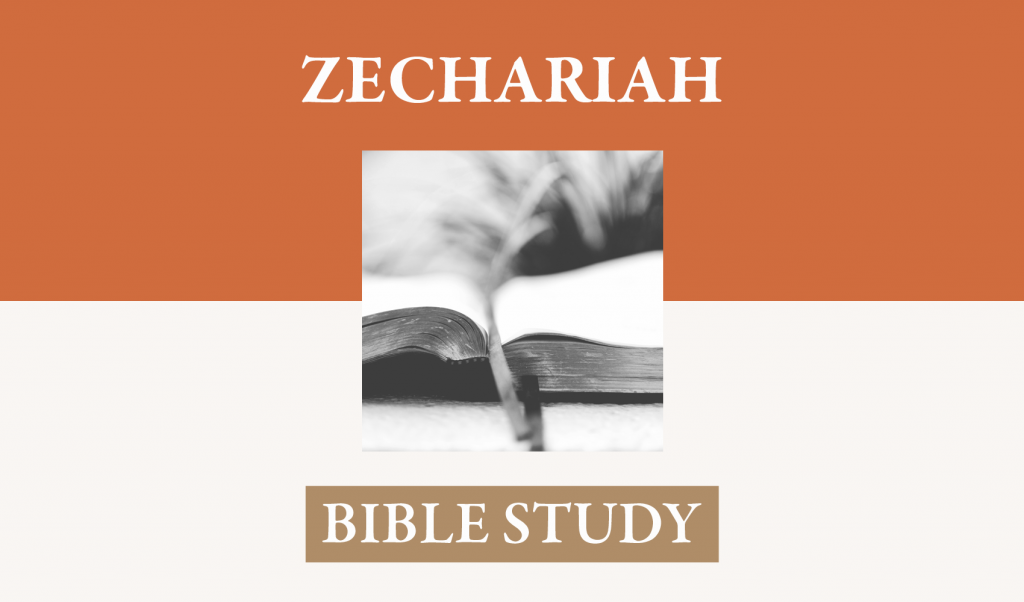Introduction: This prophet came up to
8:16 in Ephesians 4:25
9:9 in Matthew 21:5 and John 12:14, 15
11:12, 13 in Matthew 27:9 {This passage named the prophet as Jeremiah. This could be explained from the way the Jews arranged their books into Law, Prophets and Holy Writings. This last division begins with Psalms and sometimes the entire division is referred to as Psalms (Luke 24:44); the latter prophets, beginning with Jeremiah and including Zechariah, could be called by general reference, Jeremiah.]
12:10 in John 19:37 and Revelation 1:7
13:7 in Matthew 26:31 and Mark 14:27
I. Zechariah 8:1-8 – By his own zeal, the Lord of Hosts makes
A. Verses 1-3 – Now, through Zechariah, the “Lord of Hosts,” indicates his undeterrable determination to establish his glory, his presence and fulfill his purpose in calling out a people. Quite often in the prophets, the reader will come upon these passages that alternate with others, the one showing the people’s refusal to listen to the prophets and conform to the Lord’s standards of justice, righteousness, and holiness (7:8-14), the other showing the people docile and joyfully compliant. Such sharp contrasts give the empirical evidence that humanity, even that portion blessed with divine revelation and righteous laws and promises and admonitions, left to itself will absolutely fail of any genuine worship and obedience to God. They uniformly will make “their hearts diamond-hard lest they should hear the law and the words that the Lord of hosts had sent by his Spirit” (7:12). Unless God Himself puts a new spirit within them, fallen humanity is so bound by the flesh and so blinded by Satan and so in love with and intrigued by the world, that none will seek God. But God will not leave Himself without witness and without a people. He has given them to his Son and he will call them and make of them a holy people and show them the true joy and loveliness of life is bound up in knowing and loving the triune God.
1. It is out of his jealousy for
2. God states the fact that he has returned to
3. In dong this it will involve the transformation of the city’s inhabitants into a faithful and holy people so that the city will be called a “faithful city” and the “holy mountain.”
B. Relationships and occupation in the city will be joyful, secure, and full of promise for the future.
1. Those that are advanced in years will find no reason for alarm but will enjoy their maturity in peacefulness, able to sit along the streets, with staff in hand, an evidence of their age and vulnerability, but with no fear.
2. By the same token, family life flourishes as boys and girls fill the city, playing without intimidation. There are none present in the city to give alarm or threaten its safety or spoil its joy. “Outside are the dogs and sorcerers and the sexually immoral and murderers and idolaters, and everyone who loves and practices falsehood” (Revelation 22:15). Sin destroys all that is good, right, holy, just, beautiful, true, living, and worshipful. Exclude sin, exclude all that destroys the good.
3. It is the “remnant” that will be enjoying this situation of perfect peace and it will appear marvelous, wonderful, miraculous. The experience of living under the constant oppression of personal sin and the threats of a sinful society will be removed and the entire experience will be an endless source of joyful amazement.
4. God poses the question, “Should it also be marvelous in my sight?” It is a situation that will manifest the pleasure of God, but perhaps will not amaze him for it is a condition toward which he has been bringing this age from eternity past. This peace, love, harmony, symmetry, and perfection of personal relationships constitutes the natural environment of God’s intrinsic Being. To him, this is not a “marvel” but the “normal” blessedness undisturbed by sin.
C. God declares that he will bring this condition of absolute and perfect complacency about by his own power.
1. From all over the world, from its every corner and from every nation, God will gather his people. He will save them.
2. They will dwell in the midst of
3. The ultimate promise that fulfills every covenant is that which is stated here, “And they shall be my people, and I will be their God” (8:8). “I have returned to
II. Zechariah 9:9-12 – The city is restored by the Blood of the Covenant
A. Verse 9 – The king comes in a state of humility. This vision of the entrance of the humble king into
1. Such celebration was prompted by Jesus’ having raised Lazarus from the dead and the excitement of the people about the immediate manifestation of power that they anticipated. They looked for an immediate physical display of revolutionary power and saw this entrance to Jerusalem as its precursor based on their view of what follows in Zechariah (see 9:14-17; 10:5; 12:6-9).
2. They did not see, however, key elements of the entirety, looking selfishly only to their own dominance, and failing to see the picture of redemption through rejection (chapter 11 and 12:10-13) and death (9:11a:13:7) and that as a nation they largely would reject the Messiah (11:10, 11) and be given over to blind teachers (11:15-17 cf. Matthew 23:13-15).
B. Verse 10 – Here Zechariah prophesies the time of the cessation of war and the inculcation of true peace, a condition of society and individual mind that none has known since the disobedience of Adam and Eve. Instruments of war will be obliterated from the Jews and they will be subject, along with the nations to the peaceful rule of this humble King. A remnant of both Jews and the nations shall compose this people [9:6, 7 “It too shall be a remnant for our God; it shall be like a clan in
C. Verses 11, 12 – How is this rule from “sea to sea . . . to the ends of the earth” accomplished?
1. The means by which this rule and peaceful reign come to pass is “the blood of my covenant with you.” They did not anticipate that the entrance of the King into
2. This is the “blood of the eternal covenant” through which God becomes the “God of peace,” and raises from the dead the great shepherd of the sheep. This is the cup the Messiah came to drink to establish his rule. “But for this purpose I have come to this hour . . . Now is the judgment of this world; now will the ruler of this world be cast out. And I, when I am lifted up from the earth, will draw all people to myself” (John 12:27-32).
3. It is by his blood, pledged for redemption before the foundation of the world, that prisoners are set free, a stronghold of hope is granted them and they are restored double to fellowship with God. He will equip you with everything good for doing his will and work in you that which is well pleasing to him (Hebrews 13:20, 21). “Let the water and the blood from thy riven side which flowed be of sin the double cure, save from wrath and make me pure.”

















